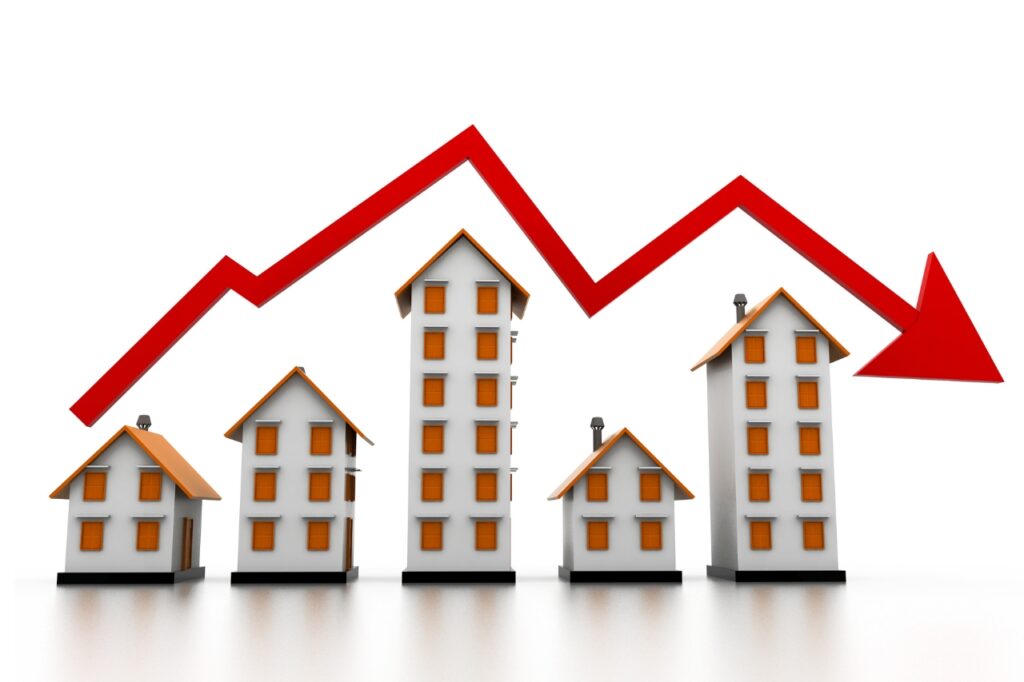
Is The Housing Market Going To Crash? An Analysis On The Housing Market In Ontario
Ontario’s housing market has been on a roller coaster ride for the past few years. Prices have been increasing at an alarming rate, and many people are beginning to wonder if we’re headed for another housing market crash. In this article, we will take a closer look at Ontario’s housing market and answer the question: is the housing market going to crash? An Analysis on the Housing Market in Ontario.
What is a housing market crash and how does it happen?
A housing market crash is when prices in the housing market decrease rapidly. This can happen for a variety of reasons, but most often it happens when there is an oversupply of homes and not enough buyers causing a discrepancy between supply and demand. Essentially, when this differentiation occurs, sellers are forced to lower their prices in order to attract buyers, which leads to a decrease in overall prices.
Having said that, there are a number of factors that can contribute to an oversupply of homes, but the two most common ones are an increase in the amount of new home construction and a decrease in demand for housing.
When it comes to new home construction, if there is too much supply and not enough demand, this can lead to vacant or unsold properties, which can then have a negative impact on prices. This issue is usually prominent in cities that don’t attract a lot of visitors naturally because of how remote they are. Other factors that can influence the amount of vacancy for these newly constructed homes includes factors such as limited job opportunities in the area, not enough urbanization, unfavorable weather conditions as well as a multitude of other reasons geared to personal preferences for potential home buyers.
These factors work hand in hand with the second factor that leads to an oversupply of homes which would be due to the general decrease in demand for housing as a whole. This can be caused by a number of things such as job loss, interest rates increasing, or even changes in government policy.
All in all, if it is unfavorable to move to an area, it doesn’t matter how many new houses are being built because no one will be moving there which causes an oversupply of homes relative to general demand.
The History of Ontario’s Housing Market
There is no doubt that the housing market in Ontario has been on the rise for the past few years. Based on recent statistics it is estimated that the average residential price of homes in Ontario are expected to rise by 14% in the year 2022.
So, is the sky the limit? Is the housing market going to crash?
Well, to answer that question, we need to take a look at the history of Ontario’s housing market.
The first thing to note is that the market has always been cyclical. There have been peaks and troughs throughout the years, but prices have always eventually rebounded.
Looking back at the year 2008 we saw that nationally the housing market recession was quite severe, with new housing starts dropping from 175,000 to nearly 118,000. In addition to that, sales of existing homes fell by 40% from their peak with the national resale price for a house dropping by 9.5% and new home prices falling by 3.5% (Source).
Fortunately however, in the years following the recession, we saw a gradual rebound in prices as the market began to recover. By the year 2012, new housing starts had increased to nearly 160,000 with the average selling price of a home being close to $500,000.
Now, it’s important to note that the housing market is not the same in every province. In fact, it varies quite significantly. For example, in 2008 while the national average price of a home dropped by nearly $50,000, in Ontario the average price only decreased by $20,000.
This is likely because at the time, Ontario’s economy was still doing relatively well compared to the rest of the country. In fact, the province’s unemployment rate was only at about half of the national average. As a result, there was still a high demand for housing, even though prices had dropped and this helped to prevent any sharp decline in prices and allowed the market to recover relatively quickly. Read about how to buy foreclosure homes in Ontario on our blog page now!
So, what does this all mean for the future of Ontario’s housing market?
Well, it’s difficult to say for certain. However, if we look at the past few years, it’s clear that prices have been on the rise once again. In fact, according to CMHC the average price of a home in Ontario is expected to reach $730,000 by the year 2022.
Of course, this is just an estimate and there are a number of factors that could lead to prices either increasing or decreasing in the coming years.
It’s also important to remember that the market is always cyclical. So, even if prices do continue to increase in the short-term, it’s inevitable that there will be a correction at some point.
It’s impossible to say for certain whether or not the housing market is going to crash. However, if we look at the past history of the market, it’s clear that prices always eventually rebound after a decline. So, even if there is a sharp decrease in prices in the coming years, it’s likely that the market will eventually recover.
How Can People Protect Themselves From a Potential Housing Market Crash?
There are a number of things that people can do to protect themselves from a potential housing market crash.
First, it’s important to remember that the market is always cyclical. So, even if prices do drop in the short-term, they will eventually rebound. This means that if you’re thinking of buying a home, it’s important to take a long-term view.
Second, if you’re worried about a potential crash, it might be a good idea to wait until prices start to stabilize before buying. This way, you’ll avoid overpaying for your home and will be in a better position to weather any potential downturn.
Third, it’s important to have a realistic idea of what you can afford. This means not stretching yourself too thin financially and being aware of the potential risks involved in taking on too much debt.
Fourth, it’s always a good idea to have a reserve fund set aside in case of an emergency. This way, if prices do drop and you need to sell your home, you’ll have the financial cushion you need to weather the storm.
Is The Housing Market Going to Crash – The Verdict
So, what is the verdict? Is the housing market going to crash? There are certainly indicators that seem to suggest this may be the case. However, it’s important to remember that no one can predict the future with certainty. What we can do is look at all of the evidence and make an informed decision. In our opinion, it seems that the housing market in Ontario is heading for a downturn. However, it’s hard to say how severe this downturn will be. Only time will tell.
All in all, it’s important to remember that a housing market crash is not the end of the world. While it can be difficult and stressful, there are always opportunities for those who are willing to look for them. So, if you do find yourself in the midst of a market crash, don’t panic. Instead, take a deep breath and remember that this too shall pass.
We hope this article gave you some insight on the general trend of the housing market in Ontario. If you are interested in analyzing the housing market in particular cities such as Mississauga, feel free to check out our Housing Market Mississauga assessment for more information!

